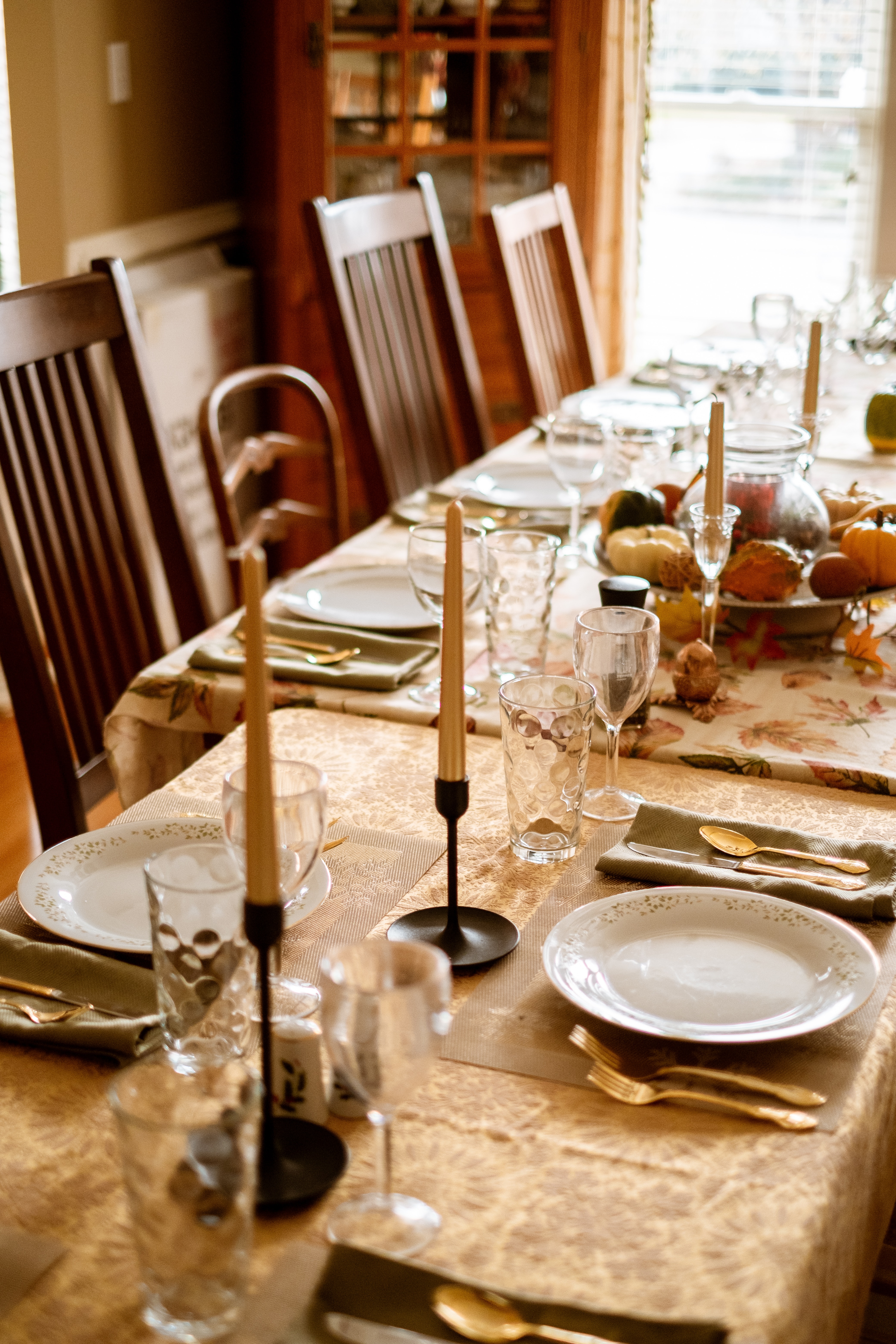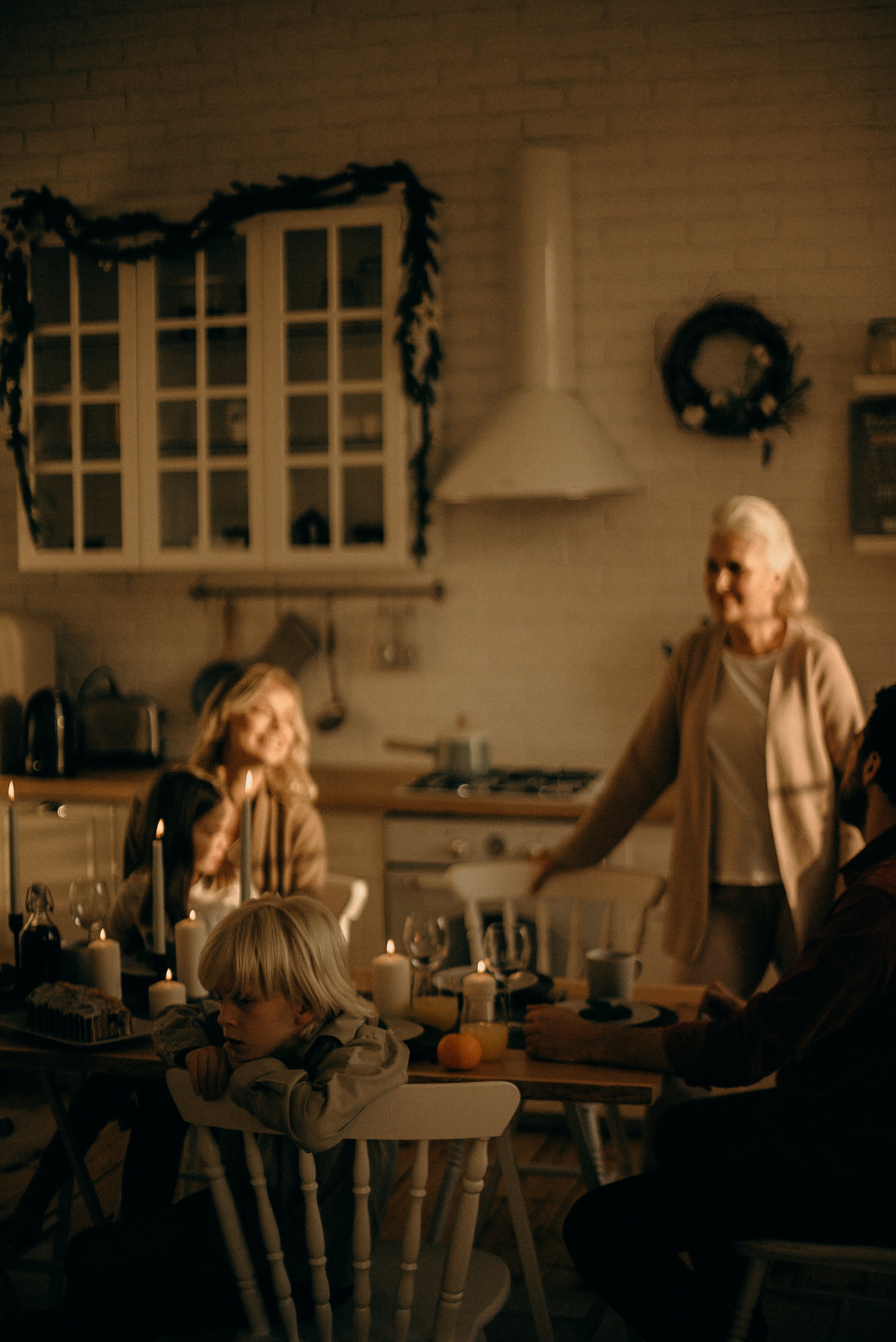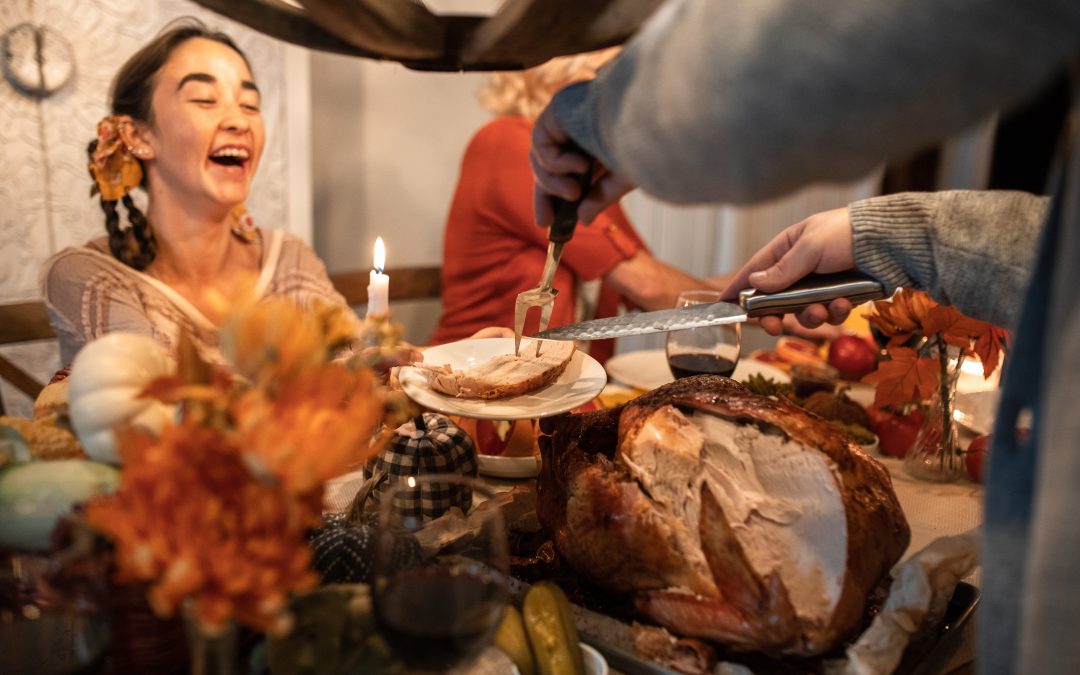Family Dynamics | Body Image and Eating Issues | Advice from a Therapist
Thanksgiving is right around the corner, and it’s a holiday that brings up a lot of mixed emotions.
While many people enjoy the time to celebrate gratitude and togetherness, others struggle with stressful family dynamics, or grapple with the holiday’s colonial origins. For people who are working to unpack and heal issues with food and body image, Thanksgiving can be a particular source of anxiety and dread.
A holiday with food at the center can be incredibly daunting for anyone managing body image issues, and those struggling with or recovering from an eating disorder can find themselves severely triggered, unable to focus on the emotional meaning behind the holiday–expressing gratitude with your loved ones–because they are too busy in survival mode to be able to tune in with everyone else.

There is a lot to navigate if you’re managing a fraught relationship with your body, or the way you see your body. From internal messages telling you what you need to do to earn your food, to that personal calorie counter in your head, to fear of how others will respond to your appearance or how it’s changed in the last year, even just the internal turmoil is a lot to manage. Then, there’s the external pressure that comes when others feel entitled to comment on your body or how much you’re eating.
While Thanksgiving can be a time for us to come together and express love and gratitude with family and friends, it’s also a day steeped in diet culture.
The holiday season has begun, so comments on how it’s the countdown to the New Year’s diets are bound to start trickling in. It’s a time when we see how closely we as a culture link food to morality–like with all those little comments on being “bad” by taking a second helping or emphasizing the importance of prioritizing the “healthy choices” at the table. From Turkey Trot marketing strategies to the culture of light fasting before the meal, it’s hard to escape the narrative that you need to earn your meal–or punish your body in some way for having that meal.

If you’re feeling nervous as Thanksgiving is coming up, here are some tools and practices for you to turn to for support:
Manage expectations:
Are there people you can have conversations with about the harms of diet culture/commenting on others body’s? Think about who those conversations are possible with, and when you should politely but firmly redirect the conversation.
Finding your way out of diet culture is hard work and some people just aren’t ready to do the work. Some people are–prioritize effort with them, if you’re willing to take on the role of educator. But when you know it will just lead to a fight or a frustrating & fruitless conversation, just find a way to remove yourself and avoid any harm that it could do to you.
Have some affirmations at the ready:
Affirmations are a great way to both remind yourself of what it is you actually think, and to self soothe in moments of emotional distress. Some affirmations you could use when navigating food or body shame during the holidays could be:
- Their comments are about their relationship to their body, not mine.
- I don’t have to earn food to eat it.
- My body knows when its full more than anyone else at the table.
- I am the expert on my body, not anyone else.
- There’s nothing unhealthy about participating in a joyful meal.
- Food is more than nutrition, it’s connection and comfort, and I deserve to take part in that as much as anyone else.
- I know the culture we live in has made us all feel wrong in our bodies, and I know I don’t deserve to have those wounds projected onto me.
- I’m allowed to take up space.
- I’m allowed to tell people when they make me feel uncomfortable.
- I will show myself and my body the kindness I should be getting from others.

Prepare a response to unwanted comments:
Whether you want to get ready with some body positive or anti-diet culture talking points, or just figure out firm but polite ways to shut down any negative body talk, having a few responses ready can be helpful. For example:
- In response to “You look great, have you lost weight?” you could say “I don’t track that, but I’ve been having a lot of fun with my new hobby/been engrossed in a project at work/spending more time connecting with friends/etc., and it’s been making me feel great!” This can take the compliment in the spirit of how it was meant, while pulling the conversation away from the idea that being thinner is better or the only way to be happy.
- In response to “are you sure you want more?” you could say, “my body will tell me when I’ve had enough, I know my cues!”
- If people start to bring up dieting, you could direct the conversation away by showing gratitude for all the work that went into the food on the table and say: “Since everyone worked so hard on the meal, let’s keep discussions of food positive today!”
We’re super inspired by @evolvedteacher’s suggestions for go-to phrases you can use to stop racist talking points when they come up at Thanksgiving dinner, ranging from very stern to very gentle. Reading through those can also help give you an idea what kind of language to use with family when diet culture talking points come up!
Try to find a focus outside of food:
What’s something other than the meal you can look forward to about the holiday? Can that become the emotional center of your day? It can help take some of the emotional weight off of the meal, so each little interaction doesn’t have so much significance.
Have someone safe to turn to for support:
Is there a sibling or cousin you’re close with who will be at the family function, and understands your point of view?

If not, pick a trusted friend who you can text or call when you’re feeling like you just wish someone was on your side. Maybe a friend has similar issues with their family when going home for holidays and you two can support one another from afar.
If you’re in recovery for an eating disorder, make a plan with your therapist for who to contact in an emergency–they’ll know your treatment best and be able to help you come up with a plan in case you need emergency professional support.
Curious about connecting with a body image or eating disorder therapist? Contact us for a free 20-minute phone consultation to see how Stella Nova can help you.
Somatic Therapy in San Francisco & Online Therapy in California
Are you looking for support in exploring the mind-body connection using somatic therapy? Stella Nova offers online therapy for individuals and couples virtually throughout California, and in-person in San Francisco. Our team can provide therapy for depression, anxiety, stress, burnout, chronic pain, and more through a somatic therapy lens.
We’re a BIPOC and LGBTQ+ owned and operated clinic that strives to provide an affirming, safe healing space for every one of our clients.
To connect with a somatic therapist near you, schedule a free, 20-minute consultation with our Intake Specialist, Cami.

